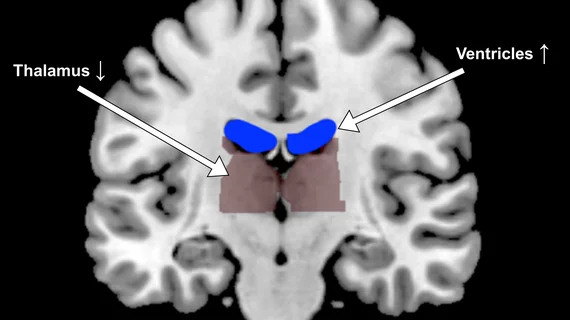Researchers use fMRI to study how dehydration affects the brain
Researchers from the Georgia Institute of Technology in Atlanta have used fMRI to examine what happens to a person’s brain when it is dehydrated, sharing their findings in a new study published by Physiological Reports.
The team asked volunteers to perform a repetitive task—pushing a specific button when a yellow square appeared on a monitor—for 20 minutes without hydrating. Even when no dehydration is present, the authors noted that “exertion and heat” can have a negative impact on a person’s ability to function—when dehydration does kick in, it just makes that negative impact that much worse.
“We wanted to tease out whether exercise and heat stress alone have an impact on your cognitive function and study the effect of dehydration on top of that,” principal investigator Mindy Millard-Stafford, PhD, a professor at Georgia Tech, said in a prepared statement. “We found a two-step decline.”
The fMRI revealed that ventricles in the center of the brain contracted when a participant exercised, sweated or just took a drink of water. When the person worked and was dehydrated, those ventricles expanded instead of contracting.
“The structural changes were remarkably consistent across individuals,” Millard-Stafford said in the same statement. “But performance differences in the tasks could not be explained by changes in the size of those brain areas.”
The imaging also revealed changes to “neural firing patterns” in the participants’ brains.
Millard-Stafford and colleagues said they hope these findings, and further research into how the brain responds in certain situations, can help improve both workplace safety and athlete performance.

